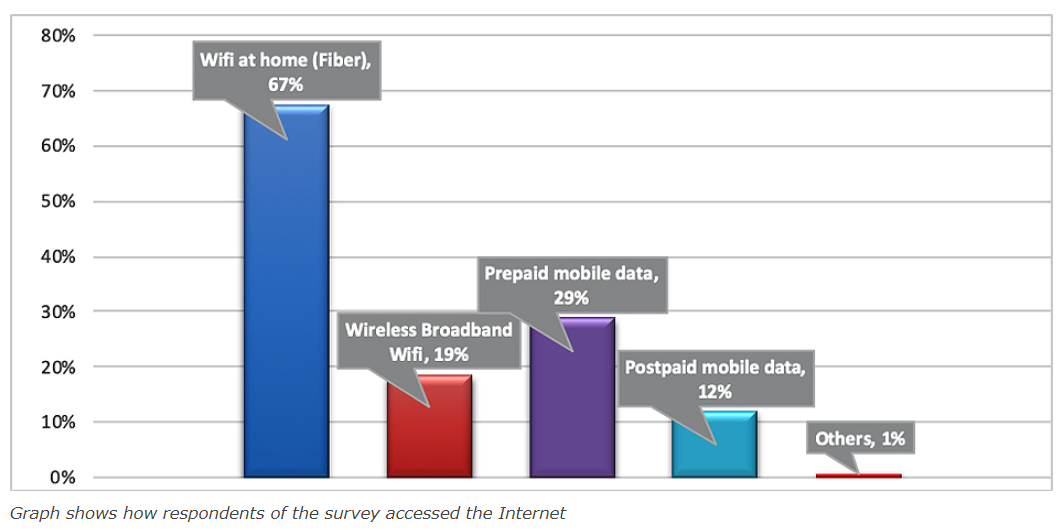Brunei: UTB survey recommends four hours’ online learning per day
A survey by Universiti Teknologi Brunei (UTB) on the usage of Online Education Platform (OEP) during the COVID-19 crisis recommends limiting online teaching and learning time to a maximum of four hours per day.
“The Internet data usage for the online lecture based on Microsoft Teams with audio calling and screen sharing scenario is about five gigabytes and two gigabytes for other educational online activities, bringing the total to seven gigabytes per month,” according to the survey report released yesterday.
As the pandemic situation continues to progress globally, UTB said its top priority is the health, safety, and well-being of its community includingits students.
UTB had planned for several contingency scenarios to limit the spread of COVID-19 while ensuring the continuity of their teaching and research mission, including shifting towards online and remote instructions.
The goal of these social distancing measures are to limit the number of instances where students and lecturers are gathered in large groups and spending time in close proximity with each other in classrooms, labs and common rooms.
The survey aimed to explore the possibility and effectiveness of online teaching, students’ experiences and satisfaction, and to identify transformational challenges faced when teaching went online.
Questionnaires were administered to UTB students across faculty and schools from March 14-17. From the survey, 670 responses were collected making the response rate of approximately 45 per cent of UTB’s student population, which is sufficient enough to draw a
meaningful conclusion.
UTB had begun online instruction via the university’s Learning Management System (MOODLE), Microsoft Teams, Zoom and Skype.
Several other online education platforms have also been used for undergraduate and graduate teaching and learning.
Although blended learning is not foreign to many modules offered at the university, it has yet to identify the effectiveness of conducting 100 per cent teaching via online.
The survey indicates that for online application deliverable, 64 per cent of the respondents used UTB Learning Management System (MOODLE), 61 per cent, Microsoft Teams, 40 per cent, Zoom, 22 per cent, Skype, four per cent, Google Hangout and nine per cent, other
online technologies.
For online lectures/learning application, 67 per cent of respondents were connected to the Internet at home Wi-Fi (Fibre connection); 29 per cent through prepaid mobile data, 19 per cent through wireless broadband Wi-Fi, 12 per cent through postpaid mobile data and only one per cent through other means of connectivity such as cafés, hostels and family member’s house Wi-Fi.
In terms of expenses spent on data, 38 per cent of the students spent BND15 and above on Internet data per week.
In response to the students’ experience and satisfaction, 88 per cent of respondents find online learning worth their time, 90 per cent find it is secures, 69 per cent find it is stimulating, 77 per cent find it is enjoyable, 72 per cent find it is exciting, 66 per cent find it is responsive and 67 per cent look forward to learn online.
The survey suggests that, although in general students were satisfied with the quality of screen sharing, audio, video and presentation slides, they also faced challenges and showed some concerns. A total of 35 per cent respondents are not satisfied with the Internet bandwidth.
Only 40 per cent respondents were in favour of online learning in comparison to face-to-face learning. The plausible reasons could be poor connectivity, high spending on Internet connection, and concern about lecturers and students’ readiness for online learning.
The survey stated that it is significant to mention that the unfavourable experience would be temporary, at least for the lecturers’ issues.
“Lecturers and students should already be well prepared both mentally and technically, should a similar situation occur in the future.
“Challenges with connectivity most likely will be solved in the future.”
Analysis on the data concluded that students prefer blended learning over online learning.
The survey recommends the introduction of Online Educational Platform Virtual Helpdesk, to provide technical support to staff and students.
However in light of the COVID-19 outbreak in the country, leading- and cutting-edge technologies for teaching and learning should be fully utilised.
However, there is little doubt that new technologies have the fullest potential to cope and face many rapid changes and challenges as well as to bring out competitive pressure.
“Higher education institutions are trying to innovate their services and raise their public reputation as education is currently undergoing a dramatic transformation. Technology plays a powerful role today and institutions can no longer meet students needs through classroom-based instruction alone,” the report stated.
It added that higher education institutions are increasingly focussed on determining the right model to integrate technologies in teaching and learning in order to fulfil students’ needs and provide the skills and education needed to prepare for the Fourth Industrial Revolution journey.
Source: https://borneobulletin.com.bn/utb-survey-recommends-four-hours-online-learning-per-day/


 English
English




